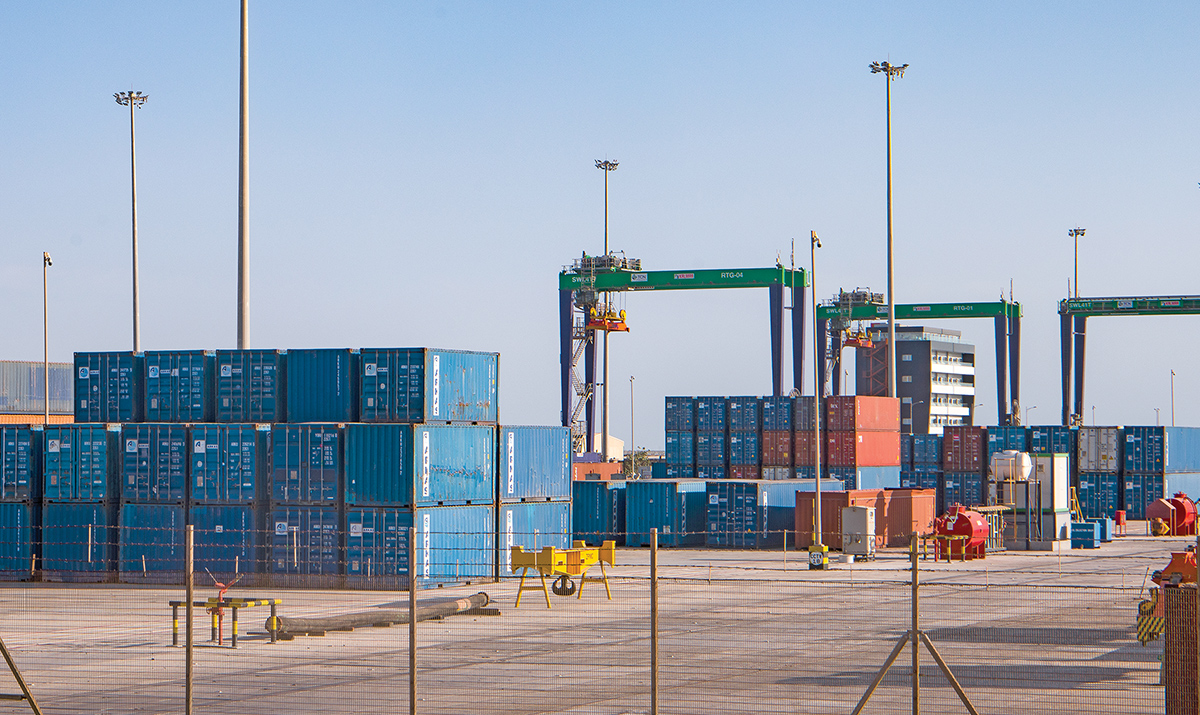
27 Nov Major infrastructure development program
Extensive investments in industrial, transport, logistics and digital infrastructure cement Mauritania’s attractiveness for investors in service industries
Mauritania’s gross domestic product is “expected to grow by 5.9% on average between 2023 and 2026,” says Mohamed Waled, president of the Fédération des Services (Federation of Services/FS). “The primary sector will be driven by agriculture and fishing, and the secondary sector by natural gas and iron ore. Our thriving tertiary services sector, which represents 44% of GDP, will grow by 6.5% on average over the period.”
Working under the umbrella of Union Nationale du Patronat Mauritanien, FS represents all companies operating in some of the biggest tertiary sub-sectors, including telecommunications, information and communication technologies, ports, transportation, logistics, consultancy and other expert professions. Its role is to promote its members’ interests to national and international stakeholders, while stimulating growth, innovation and collaboration in their industries. According to Waled, “Thanks to political, economic and social reforms undertaken by the government in consultation with the private sector, Mauritania has developed competitiveness and profitable investment opportunities in various sectors. Without being exhaustive, I would cite mining, hydrocarbons, agriculture, livestock and fishing and the processing of those industries’ products; plus services and infrastructure.”
The government has targeted investments in infrastructure to take advantage of the country’s location, which predisposes it to be a regional production and distribution hub. “Infrastructural development constitutes a priority for the state, which is reflected in the amount of public investment devoted to it and in the efforts to promote public-private partnerships for its financing and management,” he states. Recently developed transport and logistics infrastructure includes an expanded road system and new ports at Tanit and Ndiago, while existing ports have been rehabilitated, Waled notes: “Today, the Autonomous Port of Nouakchott and the Port of Nouadhibou Free Zone have efficient logistics platforms offering satisfactory services to national and international operators.”
Many more projects are in the pipeline, such as dry ports, urban and intercity transport systems, a toll highway between Nouakchott and Boutilimit that will facilitate trade to and from Mali, plus a railway running to the north and south of the country. Further projects are being constructed in the southern Trarza region. Near the border with Senegal, this area boasts excellent agricultural lands and freshwater fishing, as well as significant untapped tourism potential, due to its cultural history, diversity of wildlife, and landscapes ranging from a stunning coastline and the vast Senegal River, to lakes and desert oases.
Projects in the works for Trarza include a road bridge across the Senegal River. This will dramatically speed up the transport of goods to Senegal and connections with trans-African corridors and Europe. To complement this, a new Trarza industrial zone will act as a hub for investors in agricultural, livestock and river-fish processing and logistics, as well as tourism. Companies based there will benefit from easy access to inland markets and from its close proximity to the state-of-the-art Port of Ndiago.
Mauritania has also invested in its digital connectivity. “Projects executed so far include a national fiber-optic network, local loops and an additional submarine cable,” reveals Waled. FS supports its members to leverage emerging technologies, he adds: “Convinced of the importance of human capital in our businesses’ development, my federation places professional training at the heart of its concerns. We participate upstream in the implementation of training programs and in the management of training structures, for example.” He is confident that the ongoing investment in infrastructure will cement the country’s appeal for international investors and travelers: “Mauritania is a secure business location with proven potential that is rich in its diversity, and it is also a tourist destination worth discovering.”
